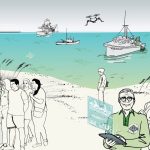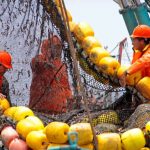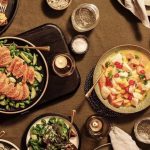Dr. Ilene Kaplan has been studying the conch fishery for the past 20 years or so. According to her Cape conch fishery is a laboratory for fishery management techniques and their impact on the local community. She said that the conch fishery reflects changes in the industry as a whole. It is said that the conch fishery was a southern fishery, usually caught with trawlers in the Caribbean.
According to Kaplan conch is primarily an ethnic food and quite a bit is sold in Asian communities. Conch salad is popular in the Bahamas, usually with chopped celery, green and hot peppers, diced tomatoes and lime juice. She told that New England whelk is very tough compared to southern conch but if it’s shaved thin and pummeled and tenderized, it can be cut up and used in salads or chowder. Kaplan informed that her main focus has been on co-management and how much input fishermen have.
Kaplan told that the Massachusetts fishery was unmanaged until 1992 when the state began regulating the catch, concerned that overfishing would do for the New England conch what it had done to fellow snails of the south. She also told that it has reached 2.4 million annually. Studying conch fishery was an opportunity to look at marine management policy and how it affected fishermen and people in the business and what their reaction was to it, exclaimed Kaplan.
She comments that it is useful to study the impact of marine policy on fishing people and how fishing people participate in the policy process. About regulations she said that the conch fishery doesn’t exist in a vacuum. Other fishery regulation impacts conch as well. She informed that the state just started regulating the horseshoe crabs and that impacts the conch fishery because horseshoe crabs are used as bait in the traps for conch.








